Inferno Read online
Page 16
interest. Instead he had flashed on a bold piece of modern art that he had once seen on display here—For the Love of God—a controversial piece by Damien Hirst, which had caused an uproar when it was shown inside Vasari’s famed Studiolo.
A life-size cast of a human skull in solid platinum, its surface had been entirely covered with more than eight thousand glittering, pavé-set diamonds. The effect was striking. The skull’s empty eye sockets glistened with light and life, creating a troubling juxtaposition of opposing symbols—life and death … beauty and horror. Although Hirst’s diamond skull had long since been removed from Lo Studiolo, Langdon’s recollection of it had sparked an idea.
The eyes of death, he thought. A skull certainly qualifies, doesn’t it?
Skulls were a recurring theme in Dante’s Inferno, most famously Count Ugolino’s brutal punishment in the lowest circle of hell—that of being sentenced to gnaw eternally on the skull of a wicked archbishop.
Are we looking for a skull?
The enigmatic Studiolo, Langdon knew, had been built in the tradition of a “cabinet of curiosities.” Nearly all of its paintings were secretly hinged, swinging open to reveal hidden cupboards in which the duke had kept strange possessions of interest to him—rare mineral samples, beautiful feathers, a perfect fossil of a nautilus shell, and even, allegedly, a monk’s tibia decorated with hand-pounded silver.
Unfortunately, Langdon suspected all the cupboard items had been removed long ago, and he had never heard of any skull on display here other than Hirst’s piece.
His thoughts were cut short by the loud slam of a door on the far side of the hall. The brisk click of footsteps approached quickly across the salon.
“Signore!” an angry voice shouted. “Il salone non è aperto!”
Langdon turned to see a female employee marching toward him. She was petite, with short brown hair. She was also extremely pregnant. The woman moved snappily toward them, tapping her watch and shouting something about the hall not yet being open. As she drew near, she made eye contact with Langdon, and immediately stopped short, covering her mouth in shock.
“Professor Langdon!” she exclaimed, looking embarrassed. “I’m so sorry! I didn’t know you were here. Welcome back!”
Langdon froze.
He was quite certain he had never seen this woman before in his life.
CHAPTER 37
“I almost didn’t recognize you, Professor!” the woman gushed in accented English as she approached Langdon. “It’s your clothing.” She smiled warmly and gave Langdon’s Brioni suit an appreciative nod. “Very fashionable. You look almost Italian.”
Langdon’s mouth went bone dry, but he managed a polite smile as the woman joined him. “Good … morning,” he stumbled. “How are you?”
She laughed, holding her belly. “Exhausted. Little Catalina kicked all night.” The woman glanced around the room, looking puzzled. “Il Duomino didn’t mention you were coming back today. I assume he’s with you?”
Il Duomino? Langdon had no idea who she was talking about.
The woman apparently saw his confusion and gave a reassuring chuckle. “It’s okay, everybody in Florence calls him by that nickname. He doesn’t mind.” She glanced around. “Did he let you in?”
“He did,” Sienna said, arriving from across the hall, “but he had a breakfast meeting. He said you wouldn’t mind if we stayed to look around.” Sienna enthusiastically extended her hand. “I’m Sienna. Robert’s sister.”
The woman gave Sienna’s hand an overly official handshake. “I’m Marta Alvarez. Aren’t you the lucky one—having Professor Langdon as a private guide.”
“Yes,” Sienna enthused, barely hiding the roll of her eyes. “He’s so smart!”
There was an awkward pause as the woman studied Sienna. “Funny,” she said, “I don’t see any family resemblance at all. Except perhaps your height.”
Langdon sensed an impending train wreck. Now or never.
“Marta,” Langdon interrupted, hoping he had heard her name correctly, “I’m sorry to trouble you, but, well … I guess you can probably imagine why I’m here.”
“Actually, no,” she replied, her eyes narrowing. “I can’t for the life of me imagine what you would be doing here.”
Langdon’s pulse quickened, and in the awkward silence that followed, he realized his gamble was about to crash and burn. Suddenly Marta broke into a broad smile and laughed out loud.
“Professor, I’m joking! Of course, I can guess why you returned. Frankly, I don’t know why you find it so fascinating, but since you and il Duomino spent almost an hour up there last night, I’m guessing you’ve come back to show your sister?”
“Right …” he managed. “Exactly. I’d love to show Sienna, if that’s not … an inconvenience?”
Marta glanced up to the second-floor balcony and shrugged. “No problem. I’m headed up there now.”
Langdon’s heart pounded as he looked up to the second-story balcony at the rear of the hall. I was up there last night? He remembered nothing. The balcony, he knew, in addition to being at the exact same height as the words cerca trova, also served as the entrance to the palazzo’s museum, which Langdon visited whenever he was here.
Marta was about to lead them across the hall, when she paused, as if having second thoughts. “Actually, Professor, are you sure we can’t find something a bit less grim to show your lovely sister?”
Langdon had no idea how to respond.
“We’re seeing something grim?” Sienna asked. “What is it? He hasn’t told me.”
Marta gave a coy smile and glanced at Langdon. “Professor, would you like me to tell your sister about it, or would you prefer to do so yourself?”
Langdon nearly jumped at the opportunity. “By all means, Marta, why don’t you tell her all about it.”
Marta turned back to Sienna, speaking very slowly now. “I don’t know what your brother has told you, but we’re going up to the museum to see a very unusual mask.”
Sienna’s eyes widened a bit. “What kind of mask? One of those ugly plague masks they wear at Carnevale?”
“Good guess,” Marta said, “but no, it’s not a plague mask. It’s a much different kind of mask. It’s called a death mask.”
Langdon’s gasp of revelation was audible, and Marta scowled at him, apparently thinking he was being overly dramatic in an attempt to frighten his sister.
“Don’t listen to your brother,” she said. “Death masks were a very common practice in the 1500s. It’s essentially just a plaster cast of someone’s face, taken a few moments after that person dies.”
The death mask. Langdon felt the first moment of clarity he’d felt since waking up in Florence. Dante’s Inferno … cerca trova … Looking through the eyes of death. The mask!
Sienna asked, “Whose face was used to cast the mask?”
Langdon put his hand on Sienna’s shoulder and answered as calmly as possible. “A famous Italian poet. His name was Dante Alighieri.”
CHAPTER 38
The Mediterranean sun shone brightly on the decks of The Mendacium as it rocked over the Adriatic swells. Feeling weary, the provost drained his second Scotch and gazed blankly out his office window.
The news from Florence was not good.
Perhaps it was on account of his first taste of alcohol in a very long time, but he was feeling strangely disoriented and powerless … as if his ship had lost its engines and were drifting aimlessly on the tide.
The sensation was a foreign one to the provost. In his world, there always existed a dependable compass—protocol—and it had never failed to show the way. Protocol was what enabled him to make difficult decisions without ever looking back.
It had been protocol that required Vayentha’s disavowal, and the provost had carried out the deed with no hesitation. I will deal with her once this current crisis has passed.
It had been protocol that required the provost to know as little as possible about all of his clients. He had d
ecided long ago that the Consortium had no ethical responsibility to judge them.
Provide the service.
Trust the client.
Ask no questions.
Like the directors of most companies, the provost simply offered services with the assumption that those services would be implemented within the framework of the law. After all, Volvo had no responsibility to ensure that soccer moms didn’t speed through school zones, any more than Dell would be held responsible if someone used one of their computers to hack into a bank account.
Now, with everything unraveling, the provost quietly cursed the trusted contact who had suggested this client to the Consortium.
“He will be low maintenance and easy money,” the contact had assured him. “The man is brilliant, a star in his field, and absurdly wealthy. He simply needs to disappear for a year or two. He wants to buy some time off the grid to work on an important project.”
The provost had agreed without much thought. Long-term relocations were always easy money, and the provost trusted his contact’s instincts.
As expected, the job had been very easy money.
That is, until last week.
Now, in the wake of the chaos created by this man, the provost found himself pacing in circles around a bottle of Scotch and counting the days until his responsibilities to this client were over.
The phone on his desk rang, and the provost saw it was Knowlton, one of his top facilitators, calling from downstairs.
“Yes,” he answered.
“Sir,” Knowlton began, an uneasy edge in his voice. “I hate to bother you with this, but as you may know, we’re tasked with uploading a video to the media tomorrow.”
“Yes,” the provost replied. “Is it prepped?”
“It is, but I thought you might want to preview it before upload.”
The provost paused, puzzled by the comment. “Does the video mention us by name or compromise us in some way?”
“No, sir, but the content is quite disturbing. The client appears on-screen and says—”
“Stop right there,” the provost ordered, stunned that a senior facilitator would dare suggest such a blatant breach of protocol. “The content is immaterial. Whatever it says, his video would have been released with or without us. The client could just as easily have released this video electronically, but he hired us. He paid us. He trusted us.”
“Yes, sir.”
“You were not hired to be a film critic,” the provost admonished. “You were hired to keep promises. Do your job.”
On the Ponte Vecchio, Vayentha waited, her sharp eyes scanning the hundreds of faces on the bridge. She had been vigilant and felt certain that Langdon had not yet passed her, but the drone had fallen silent, its tracking apparently no longer required.
Brüder must have caught him.
Reluctantly, she began to ponder the grim prospect of a Consortium inquiry. Or worse.
Vayentha again pictured the two agents who had been disavowed … never heard from again. They simply moved to different work, she assured herself. Nonetheless, she now found herself wondering if she should just drive into the hills of Tuscany, disappear, and use her skills to find a new life.
But how long could I hide from them?
Countless targets had learned firsthand that when the Consortium set you in its sights, privacy became an illusion. It was only a matter of time.
Is my career really ending like this? she wondered, still unable to accept that her twelve-year tenure at the Consortium would be terminated over a series of unlucky breaks. For a year she had vigilantly overseen the needs of the Consortium’s green-eyed client. It was not my fault he jumped to his death … and yet I seem to be falling along with him.
Her only chance at redemption had been to outfox Brüder … but she’d known from the start that this was a long shot.
I had my chance last night, and I failed.
As Vayentha reluctantly turned back toward her motorcycle, she became suddenly aware of a distant sound … a familiar high-pitched whine.
Puzzled, she glanced up. To her surprise, the surveillance drone had just lifted off again, this time near the farthest end of the Pitti Palace. Vayentha watched as the tiny craft began flying desperate circles over the palace.
The drone’s deployment could mean only one thing.
They still don’t have Langdon!
Where the hell is he?
The piercing whine overhead again pulled Dr. Elizabeth Sinskey from her delirium. The drone is up again? But I thought …
She shifted in the backseat of the van, where the same young agent was still seated beside her. She closed her eyes again, fighting the pain and nausea. Mostly, though, she fought the fear.
Time is running out.
Even though her enemy had jumped to his death, she still saw his silhouette in her dreams, lecturing her in the darkness of the Council on Foreign Relations.
It is imperative that someone take bold action, he had declared, his green eyes flashing. If not us, who? If not now, when?
Elizabeth knew she should have stopped him right then when she had the chance. She would never forget storming out of that meeting and fuming in the back of the limo as she headed across Manhattan toward JFK International Airport. Eager to know who the hell this maniac could be, she pulled out her cell phone to look at the surprise snapshot she had taken of him.
When she saw the photo, she gasped aloud. Dr. Elizabeth Sinskey knew exactly who this man was. The good news was that he would be very easy to track. The bad news was that he was a genius in his field—a very dangerous person should he choose to be.
Nothing is more creative … nor destructive … than a brilliant mind with a purpose.
By the time she arrived at the airport thirty minutes later, she had called her team and placed this man on the bioterrorism watch lists of every relevant agency on earth—the CIA, the CDC, the ECDC, and all of their sister organizations around the world.
That’s all I can do until I get back to Geneva, she thought.
Exhausted, she carried her overnight bag to check-in and handed the attendant her passport and ticket.
“Oh, Dr. Sinskey,” the attendant said with a smile. “A very nice gentleman just left a message for you.”
“I’m sorry?” Elizabeth knew of nobody who had access to her flight information.
“He was very tall?” the attendant said. “With green eyes?”
Elizabeth literally dropped her bag. He’s here? How?! She spun around, looking at the faces behind her.
“He left already,” the attendant said, “but he wanted us to give you this.” She handed Elizabeth a folded piece of stationery.
Shaking, Elizabeth unfolded the paper and read the handwritten note.
It was a famous quote derived from the work of Dante Alighieri.
The darkest places in hell
are reserved for those
who maintain their neutrality
in times of moral crisis.
CHAPTER 39
Marta Alvarez gazed tiredly up the steep staircase that ascended from the Hall of the Five Hundred to the second-floor museum.
Posso farcela, she told herself. I can do it.
As an arts and culture administrator at the Palazzo Vecchio, Marta had climbed these stairs countless times, but recently, being more than eight months pregnant, she found the ascent significantly more taxing.
“Marta, are you sure we don’t want to take the elevator?” Robert Langdon looked concerned and motioned to the small service elevator nearby, which the palazzo had installed for handicapped visitors.
Marta smiled appreciatively but shook her head. “As I told you last night, my doctor says the exercise is good for the baby. Besides, Professor, I know you’re claustrophobic.”
Langdon seemed strangely startled by her comment. “Oh, right. I forgot I mentioned that.”
Forgot he mentioned it? Marta puzzled. It was less than twelve hours ago, and we discussed at length the c
hildhood incident that led to the fear.
Last night, while Langdon’s morbidly obese companion, il Duomino, ascended in the elevator, Langdon had accompanied Marta on foot. En route Langdon had shared with her a vivid description of a boyhood fall into an abandoned well that had left him with a nearly debilitating fear of cramped spaces.
Now, while Langdon’s younger sister bounded ahead, her blond ponytail swinging behind her, Langdon and Marta ascended methodically, pausing several times so she could catch her breath. “I’m surprised you want to see the mask again,” she said. “Considering all the pieces in Florence, this one seems among the least interesting.”
Langdon gave a noncommittal shrug. “I’ve returned mainly so Sienna can see it. Thank you, by the way, for letting us in again.”
“Of course.”
Langdon’s reputation would have sufficed last night to persuade Marta to open the gallery for him, but the fact that he had been accompanied by il Duomino meant that she really had no choice.
Ignazio Busoni—the man known as il Duomino—was something of a celebrity in the Florence cultural world. The longtime director of the Museo dell’Opera del Duomo, Ignazio oversaw all aspects of Florence’s most prominent historical site—Il Duomo—the massive, red-domed cathedral that dominated both the history and the skyline of Florence. His passion for the landmark, combined with his body weight of nearly four hundred pounds and his perpetually red face, resulted in his good-natured nickname of il Duomino—“the little dome.”
Marta had no idea how Langdon had become acquainted with il Duomino, but the latter had called her last evening and said he wanted to bring a guest for a private viewing of the Dante death mask. When the mystery guest turned out to be the famous American symbologist and art historian Robert Langdon, Marta had felt a bit of a thrill at having the opportunity to usher these two famous men into the palazzo’s gallery.
Now, as they reached the top of the stairs, Marta placed her hands on her hips, breathing deeply. Sienna was already at the balcony railing, peering back down into the Hall of the Five Hundred.
“My favorite view of the room,” Marta panted. “You get an entirely different perspective on the murals. I imagine your brother told you about the mysterious message hidden in that one there?” She pointed.
Sienna nodded enthusiastically. “Cerca trova.”
As Langdon gazed toward the room, Marta watched him. In the light of the mezzanine windows, she couldn’t help but notice that Langdon did not look as striking as he had last night. She liked his new suit, but he needed a shave, and his face seemed pale and weary. Also, his hair, which was thick and full last night, looked matted this morning, as if he had yet to take a shower.
Marta turned back to the mural before he caught her staring. “We’re standing at nearly the exact height as cerca trova,” Marta said. “You can almost see the words with the naked eye.”
Langdon’s sister seemed indifferent to the mural. “Tell me about Dante’s death mask. Why is it here at the Palazzo Vecchio?”
Like brother, like sister, Marta thought with an inward groan, still perplexed that the mask held such fascination for them. Then again, the Dante death mask had a very strange history, especially recently, and Langdon was not the first to show a nearly maniacal fascination with it. “Well, tell me, what do you know about Dante?”
The pretty, young blonde shrugged. “Just what everyone learns in school. Dante was an Italian poet most famous for writing The Divine Comedy, which describes his imagined journey through hell.”

 Angels & Demons
Angels & Demons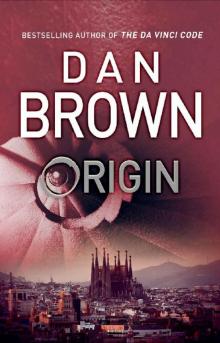 Origin
Origin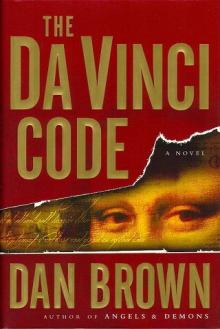 The Da Vinci Code
The Da Vinci Code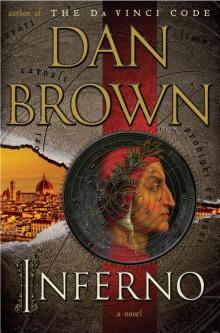 Inferno
Inferno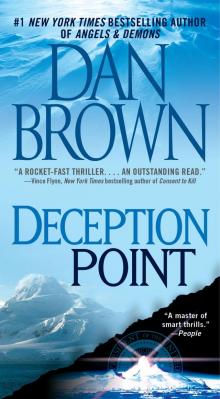 Deception Point
Deception Point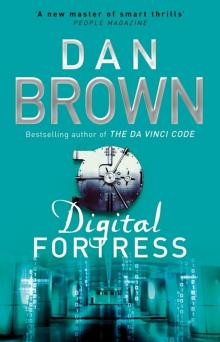 Digital Fortress
Digital Fortress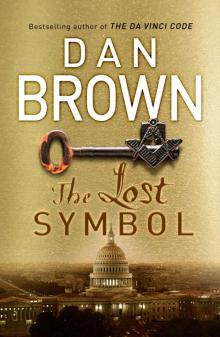 The Lost Symbol
The Lost Symbol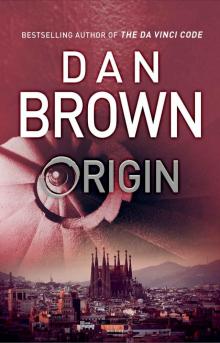 Origin: (Robert Langdon Book 5)
Origin: (Robert Langdon Book 5)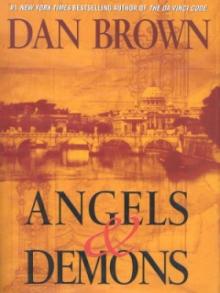 Angles & Demons
Angles & Demons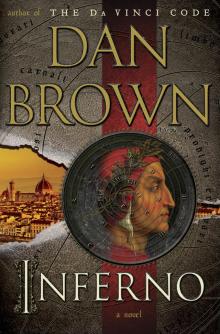 Inferno: A Novel
Inferno: A Novel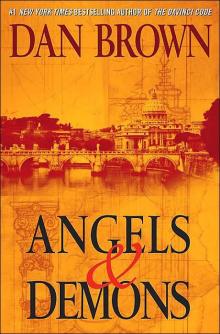 Angels & Demons rl-1
Angels & Demons rl-1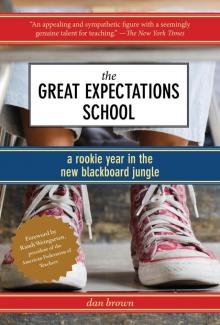 The Great Expectations School
The Great Expectations School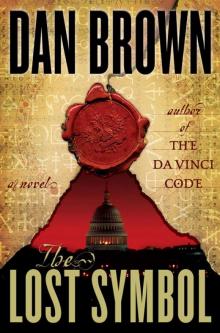 The Lost Symbol rl-3
The Lost Symbol rl-3 Angels and Demons
Angels and Demons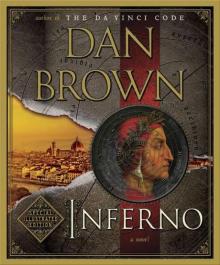 Inferno: Special Illustrated Edition: Featuring Robert Langdon
Inferno: Special Illustrated Edition: Featuring Robert Langdon